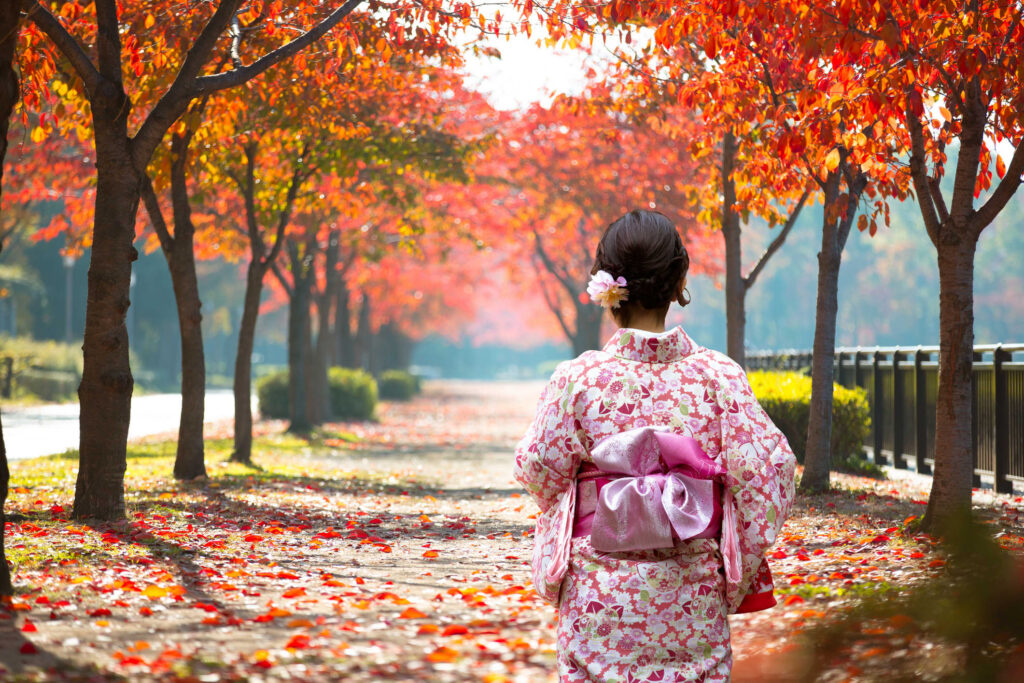Busakorn Pongparnit | Moment | Getty Images
Japan recently introduced a digital nomad visa that allows foreigners from 49 countries to stay for six months.
But before you pack your bags, you might want to read up on some Japan “living and working” guidebooks aimed at helping foreigners adjust to Japan.
This guidebook is published by Japan's Immigration Services Agency and provides advice on immigration, medical care, and housing. However, in the chapter “Daily Rules and Customs,'' foreigners can find specific guidance on “rules of life'' that point to Japan's emphasis on collectivism and respect.
Here are some of the rules.
According to the guidelines, “Japanese people tend to consider loud noises and voices to be a nuisance to others.”
The guidebook states that parties and music levels, as well as “sound” and “television” levels, should be kept to a minimum.
Foreigners are also advised to keep noise down “when using washing machines or vacuum cleaners, or taking showers early in the morning or late at night.”
Japanese guidebooks for foreigners warn people not to make noise by using washing machines early in the morning or late at night.
Run Studio | Moment | Getty Images
When you're on the bus or train, listening to music through earphones may not be enough.
The guidebook states: “Make sure the music is not too loud and cannot be heard outside the earphones.”
Section 2.2 of the rulebook deals solely with “cough etiquette.”
There are also separate rules for “sudden” coughs and persistent coughs.
“If you suddenly cough or sneeze, do so into your elbow or inside your jacket sleeve,'' it says. “Please don't use your hands.”
Others have said masks should be worn.
According to the Ministry of Foreign Affairs, mask-wearing was an established part of daily life in Japan even before the COVID-19 pandemic due to the country's emphasis on personal hygiene and cleanliness.
Regarding the mask culture, the Ministry of Foreign Affairs points out that “Japan has a culture of consideration for others.'' “This national character of the Japanese people may have made them more conscious of not bothering those around them, which may have made it easier for people to wear masks,'' the analysis said.
According to the ministry, the use of masks became prominent in Japan during the Spanish flu outbreak in 1918, and the number has increased every year since then. Masks are now considered a “stylish fashion item,” he said.
Many countries prohibit the use of mobile phones while driving a car. In Japan, this rule also applies to bicycles.
According to Japan Guide, bicycles are a popular means of transportation within the country for locals and tourists, and many tourist destinations offer bicycle rentals.
Cyclists in Tokyo are not allowed to hold hands, talk, or text while riding their bikes. Earphones are also prohibited by law.
Reception background | E+ | Getty Images
In Japan, talking on the phone on buses and trains is frowned upon.
The guidebook emphasized that such behavior is considered extremely rude as it “disturbs others.”
Even in Japan, talking to your seat mates can also be offensive if it's too loud.
Regarding passengers on buses and trains, the guidelines state that “talking loudly is a violation of etiquette.''
A guidebook for foreigners published by the Japanese government states, “In Japan, talking on the phone on buses and trains is considered bad manners.''
Daji | amana Images | Getty Images
According to Japanese rail travel website Japan Rail Pass, most Japanese passengers stand or sit quietly when boarding public trains.
Foreigners are expected to abide by these rules and are reminded to only speak to train drivers in “emergency situations”.
Anyone who has ever hit their head with an accidentally thrown rucksack will be grateful for the government's final advice on public transport. “When the bus or train is crowded, please be careful that your backpack does not disturb other people.”
Henry Vlahovic, executive director of Meiji Academy, a school of Japanese language and culture, said Japan is an ethnically homogeneous country with a low rate of immigration compared to other countries.
Therefore, they are focusing on preserving their culture by encouraging foreigners to conform.
“Immigration is usually considered more sensitive,” Blachowicz said. “The government is very concerned about mitigating or omitting any kind of trouble that may arise due to foreign nationals not following certain rules.”
Vlahovic explained that these rules govern how Japanese society functions and are also expected of foreigners living in or visiting Japan.


